English version below
Fatores de Risco e Prevenção de Crimes Atrozes: Reflexões sobre a Visita da Assessora Especial da ONU ao Brasil
Cibele Kuss, Enéias Rosa, Romi Bencke e Marianna Leite
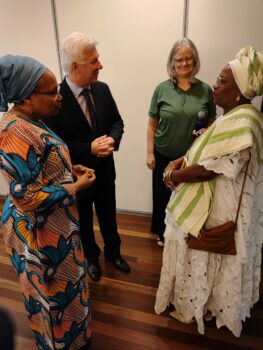
Histórico:
Em 2020, o Fórum Ecumenico ACT Brasil (FEACT) foram convidados pela Secretaria Geral de ACT Alliance para um diálogo com a Subsecretária Geral da ONU e Assessora Especial em Prevenção ao Genocídio, Alice Wairimu Nderitu, sobre os fatores de risco e grave contexto de violações de direitos humanos no Brasil. A seguir, foi apresentada uma nota técnica elaborada pelo Fórum com apresentação de casos emblemáticos de violências contra os povos indígenas no Rio Grande do Sul e Mato Grosso do Sul, chacinas contra a juventude negra no Rio de Janeiro, casos de violências contra as mulheres e povos de terreiro afetados pelo fundamentalismo religioso.
Em abril de 2022, com assessoria do Escritório das Nações Unidas, coordenadas pelo Fórum e pela Articulação para o Monitoramento dos Direitos Humanos no Brasil (AMDH), foram realizadas duas oficinas sobre fatores de risco e prevenção ao genocídio, uma no Pará e outra no Rio de Janeiro, que contou com a participação de mais de 60 organizações e coletivos da sociedade civil, indicando nos relatórios o pedido para uma visita ao Brasil da assessora especial em 2023.
A Visita e o Papel da Sociedade Civil:
Além dessas oficinas, durante a 51º de Sessão do Conselho de Direitos Humanos da ONU, a ACT Alliance e o escritório da assessora especial – UN OSAPG – realizaram um evento paralelo sobre a prevenção de crimes atrozes no Brasil. A assessora especial fez o discurso de abertura deste evento. As atividades contribuíram para colocar o tema em pauta e identificar as fragilidades e ausências de políticas públicas capazes de prevenir genocídios e crimes contra a humanidade no Brasil.
As organizações e movimentos envolvidos se apropriaram do “Mecanismo” de Prevenção do Genocídio e Responsabilidade de Proteger e reforçaram a urgência da visita do Escritório de Prevenção do Genocídio e Responsabilidade de Proteger em 2023. Como consequência, em virtude do convite do governo do Brasil, através do Ministério de Direitos Humanos e Cidadania, o Secretariado da ACT Alliance, o FEACT e a AMDH tiveram a honra de articular a co-coordenação do componente da sociedade civil durante a visita oficial da assessora especial ao país entre 1 e 12 de maio de 2023. A visita começou com uma consulta a representantes de organizações estratégicas da sociedade civil em Brasília, no dia 2 de maio, que procurou focar na questão da confluência de fundamentalismos e discursos de ódio como impulsionadores dos fatores de risco.
Avaliação da Sociedade Civil sobre os Ganhos para a Situação dos Povos Indígenas:
No dia 8 de maio, a assessora especial se reuniu em Campo Grande, Mato Grosso do Sul, com cerca de 80 representantes de ao menos 36 organizações da sociedade civil e organizações indígenas. Entre elas, representante dos povos Kaiowá, Ñandeva, Chiquitano, Karipuna e Ava-Guarani, quilombola, organizações de direitos humanos e religiosas. Também fizeram parte representantes do Ministério Público Federal, a Defensoria Pública da União e do Estado, representantes de juízes e universidades.
Todos tinham em comum dar consciência à assessora especial da gravidade da situação dos povos indígenas, em especial os que vivem fora da Amazônia, e particularmente relatar os crimes contra a humanidade perpetrados contra os Ñandeva e os Kaiowá no Mato Grosso do Sul. A maior parte destes representantes apresentaram desde sua atuação, análises sobre as múltiplas violências que atingem estes povos e os motivos e dados, pelos quais são submetidos a uma violência sistêmica, sistemática e intencional. Demonstrando que tal situação tem por causa principal à falta de acesso destes povos aos seus territórios tradicionais e toda desumanidade que decorre desta situação. Como assassinatos, suicídios, criminalização, mortalidade infantil, violência contra as mulheres, racismo entre outras violações.
Avaliação da Sociedade Civil sobre os Ganhos para a Situação de Pessoas Afrodescendentes:
No Rio de Janeiro, Alice Wairimu Nderitu encontrou mães e familiares de vítimas de violência institucional. Um grande contingente de mulheres negras, moradoras de favelas, que vivem um luto perpétuo e buscam justiça, memória e reparação para seus filhos, maridos, irmãos vítimas de homicídios decorrentes de intervenção policial. Vale lembrar que, apenas em 2022, as polícias do Rio de Janeiro mataram 1.327 pessoas, isso representa 29,7% de todas as mortes violentas do estado. Uma verdadeira epidemia e a face mais escancarada do genocídio negro. Em 2021, 87,3% dos mortos pela polícia no Rio eram negros.
Na ocasião, a assessora especial também ouviu comunidades de terreiros, coletivos de favelas, organizações religiosas e de direitos humanos. As intervenções desvelaram o racismo institucional, especialmente contra as pessoas negras, e as várias formas que o Estado brasileiro utiliza para eliminar sua população não-branca, que se manifesta através da violência contra os corpos negros e uma cidadania incompleta, através da negação de direitos básicos.
Propostas de Encaminhamentos:
Ao final da visita, houve uma roda de imprensa e a publicação de uma forte declaração da assessora especial sobre a conclusão de visita ao Brasil. A declaração já especifica recomendações para o governo e para a sociedade civil como, por exemplo, a garantia de investimento para FUNAI, novas medidas de apoio aos povos indígenas e afrodescendentes aprimoradas, contínuas e sustentáveis e o combate independente e imparcial à impunidade, principalmente entre as forças de segurança que cometeram graves violações contra indígenas e afrodescendentes brasileiros.
A ACT Alliance, o FEACT e a AMDH notam uma enorme gratidão ao engajamento humano e intenso da assessora especial durante a visita, à equipe do UN OSAPG e ONU Brasil, ao Ministério de Direitos Humanos e Cidadania por facilitar a visita oficial bem como todos os outros atores estatais envolvidos e aos movimentos sociais e organizações de sociedade civil que organizaram e/or participaram das atividades. Diante de nossa avaliação interna, destacamos o seguinte:
- O desejo de coordenar um evento perante a 53 sessão do Conselho de Direitos Humanos para maximizar o diálogo entre a assessora especial, o governo e sociedade civil sobre fatores de risco.
- A importância de incidir junto ao Conselho de Segurança da ONU sobre fatores de risco para com base na lições oferecidas pelo contexto do Brasil.
- Estabelecer diálogos de incidência com base na cultura do ódio tendo com base no manual voltado para os líderes religiosos à nível global, regional e local.
- A criação de um processo para aprofundamento dos fatores de risco do UN OSAPG sobre a perspectiva de gênero.
- Aprofundar a proposta de reunir “mães de chacinados” do Brasil com outras mães e outras parcerias de outros contextos/países.
Para mais informações:
Marianna Leite, Gerente Global de Incidência e Política da ACT Alliance, marianna.leite@actalliance.org
Algumas notícias relacionadas:
https://twitter.com/WairimuANderitu/status/1662103867780218881?s=20
A ONU e a hora de proteger os Guarani e Kaiowá – Estadão (estadao.com.br)
——-
ENGLISH VERSION
Risk Factors and Prevention of Atrocious Crimes: Reflections on the Visit of the UN Special Adviser to Brazil
Cibele Kuss, Enéias Rosa, Romi Bencke and Marianna Leite
Background:
In 2020, the Ecumenical Forum ACT Brazil (FEACT) was invited by the Secretariat of ACT Alliance for a dialogue with the UN Under-Secretary General and Special Adviser on Genocide Prevention, Alice Wairimu Nderitu, on the risk factors and serious context of violations of human rights in Brazil. Subsequent to that, a technical note prepared by the Forum was presented with the reference to emblematic cases of violence against indigenous peoples in Rio Grande do Sul and Mato Grosso do Sul, massacres against black youth in Rio de Janeiro, cases of violence against women and terreiro peoples affected by religious fundamentalism.
In April 2022, with advice from the United Nations Office, coordinated by the Forum and by the Articulation for the Monitoring of Human Rights in Brazil (AMDH), two workshops were held on risk factors and prevention of genocide, one in Pará and the other in Rio de Janeiro, which had the participation of more than 60 civil society organizations and collectives, indicating in the reports the request for a visit to Brazil by the special advisor in 2023.
The Visit and the Role of Civil Society:
In addition to these workshops, during the 51st Session of the UN Human Rights Council, the ACT Alliance and the office of the special advisor – UN OSAPG – held a side event on the prevention of atrocity crimes in Brazil. The special advisor gave the opening speech at this event. The activities contributed to putting the topic on the agenda and identifying the weaknesses and absences of public policies capable of preventing genocides and crimes against humanity in Brazil.
The organizations and movements involved took ownership of the “Mechanism” for Genocide Prevention and Responsibility to Protect and reinforced the urgency of the visit of the Office for Genocide Prevention and Responsibility to Protect in 2023. After the official invitation by the government, through the Ministry of Human Rights and Citizenship, the ACT Alliance Secretariat, FEACT and AMDH were honored to articulate the co-coordination of the civil society component during the official visit of the special advisor to the country, between May 1st and 12th, 2023. The visit began with a consultation with representatives of strategic civil society organizations in Brasilia, on May 2, which sought to focus on the issue of the confluence of fundamentalisms and hate speech as drivers of risk factors.
Civil Society Assessment of Gains for the Status of Indigenous Peoples:
On May 8, the special advisor met in Campo Grande, Mato Grosso do Sul, with around 80 representatives from at least 36 civil society organizations and indigenous organizations. Among them were representatives of the Kaiowá, Ñandeva, Chiquitano, Karipuna and Ava-Guarani peoples, quilombola, human rights and religious organizations. There were also representatives of the Federal Public Prosecutor’s Office, the Public Defender’s Office of the Union and the State, representatives from the association of judges and from universities also took part.
They all had in common the intent of making the special advisor aware of the seriousness of the situation of indigenous peoples, especially those who live outside the Amazon, and particularly reporting on the crimes against humanity perpetrated against the Ñandeva and Kaiowá in Mato Grosso do Sul. Most of these representatives presented data and analyses related the multiple violences that these peoples are subjected to, which are systemic, systematic and intentional. The idea was to demonstrate that this situation is mainly due to the lack of access of these peoples to their traditional territories and all the inhumanity that results from this situation. Some examples included murders, suicides, criminalization, infant mortality, violence against women, and racism, among other violations.
Civil Society Assessment of Gains for the Situation of People of African Descent:
In Rio de Janeiro, Alice Wairimu Nderitu met mothers and relatives of victims of institutional violence. A large contingent of Afro-descendent women, residents of favelas, who live in perpetual mourning and seek justice, memory and reparation for their children, husbands, brothers, victims of homicides resulting from police intervention. It is worth remembering that, in 2022 alone, the police in Rio de Janeiro killed 1,327 people, which represents 29.7% of all violent deaths in the state. A true epidemic and the most open face of black genocide. In 2021, 87.3% of those killed by the police in Rio were black.
The interventions revealed institutional racism, especially against Afro-descendents, and the various methods that the Brazilian State uses to eliminate its non-white population, which manifests itself through violence against black bodies and incomplete citizenship, and through the denial of basic rights.
Proposals for Next Steps:
At the end of the visit, there was a press conference and the publication of a strong statement by the special advisor on the conclusion of the visit to Brazil. The declaration already specifies recommendations for the government and civil society such as, for example, the guarantee of investment for FUNAI, new measures to support indigenous peoples and people of African descent that are improved, continuous and sustainable, and the independent and impartial fight against impunity, mainly among the security forces that committed serious violations against Brazilian indigenous and Afro-descendant people.
The ACT Alliance, FEACT and AMDH note our enormous gratitude for the human and intense engagement of the special advisor during the visit, the UN OSAPG and UN Brazil team, the Ministry of Human Rights and Citizenship for facilitating the official visit as well as all the other state actors involved and the social movements and civil society organizations that organized and/or participated in the activities. In view of our internal assessment, we highlight the following:
- The desire to coordinate an event before the 53rd session of the Human Rights Council to maximize the dialogue between the special advisor, the government and civil society on risk factors.
- The importance of influencing the UN Security Council on risk factors based on the lessons offered by the context of Brazil.
- The need to establish advocacy dialogues related to the culture of hate speech based on the handbook aimed at religious leaders at global, regional and local levels.
- The creation of a process for deepening the risk factors of the UN OSAPG on the gender perspective.
- The need to deepen the proposal to bring together the ‘mothers of victims of slaughters’ of Brazil with other mothers and partnerships from other contexts/countries.
For more information:
Marianna Leite, Gerente Global de Incidência e Política da ACT Alliance, marianna.leite@actalliance.org
Some related news:
https://twitter.com/WairimuANderitu/status/1662103867780218881?s=20
A ONU e a hora de proteger os Guarani e Kaiowá – Estadão (estadao.com.br)
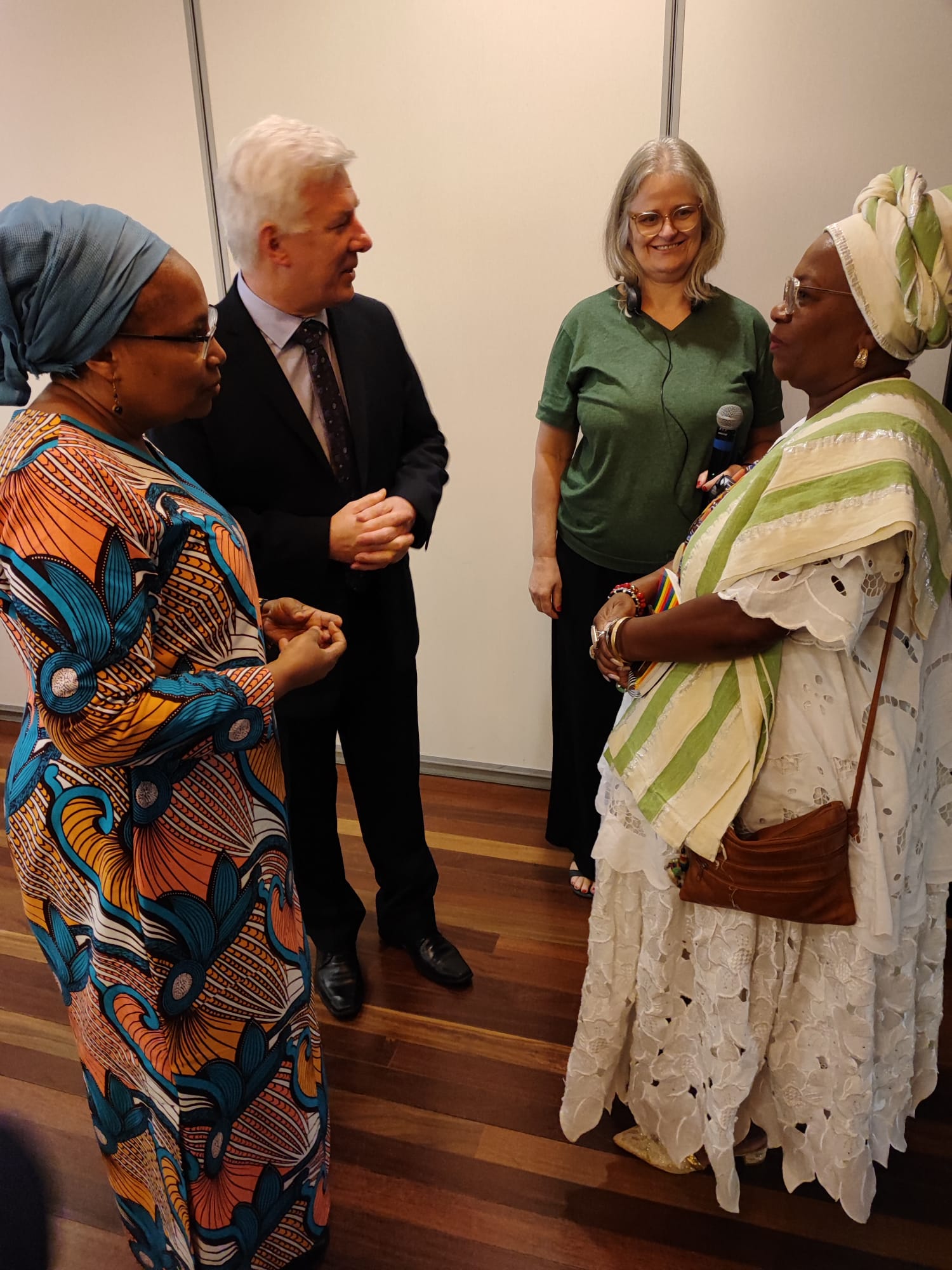
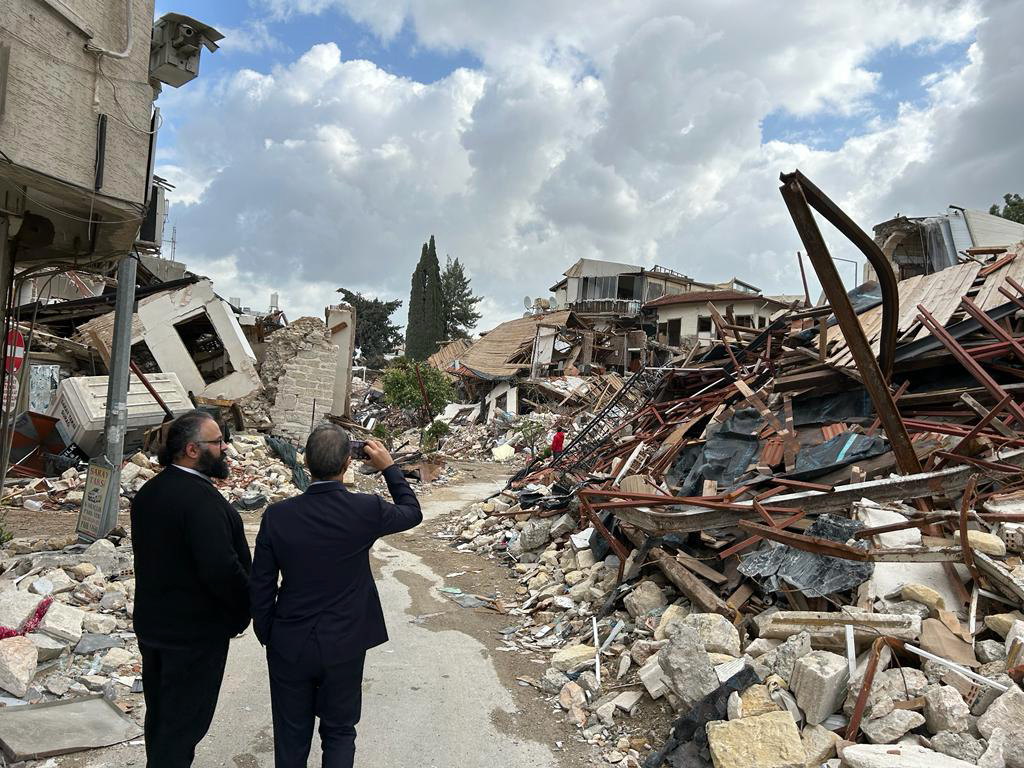
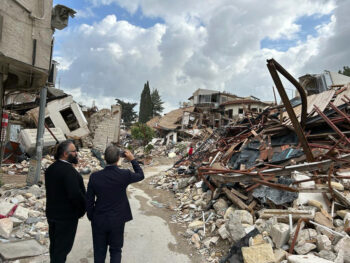
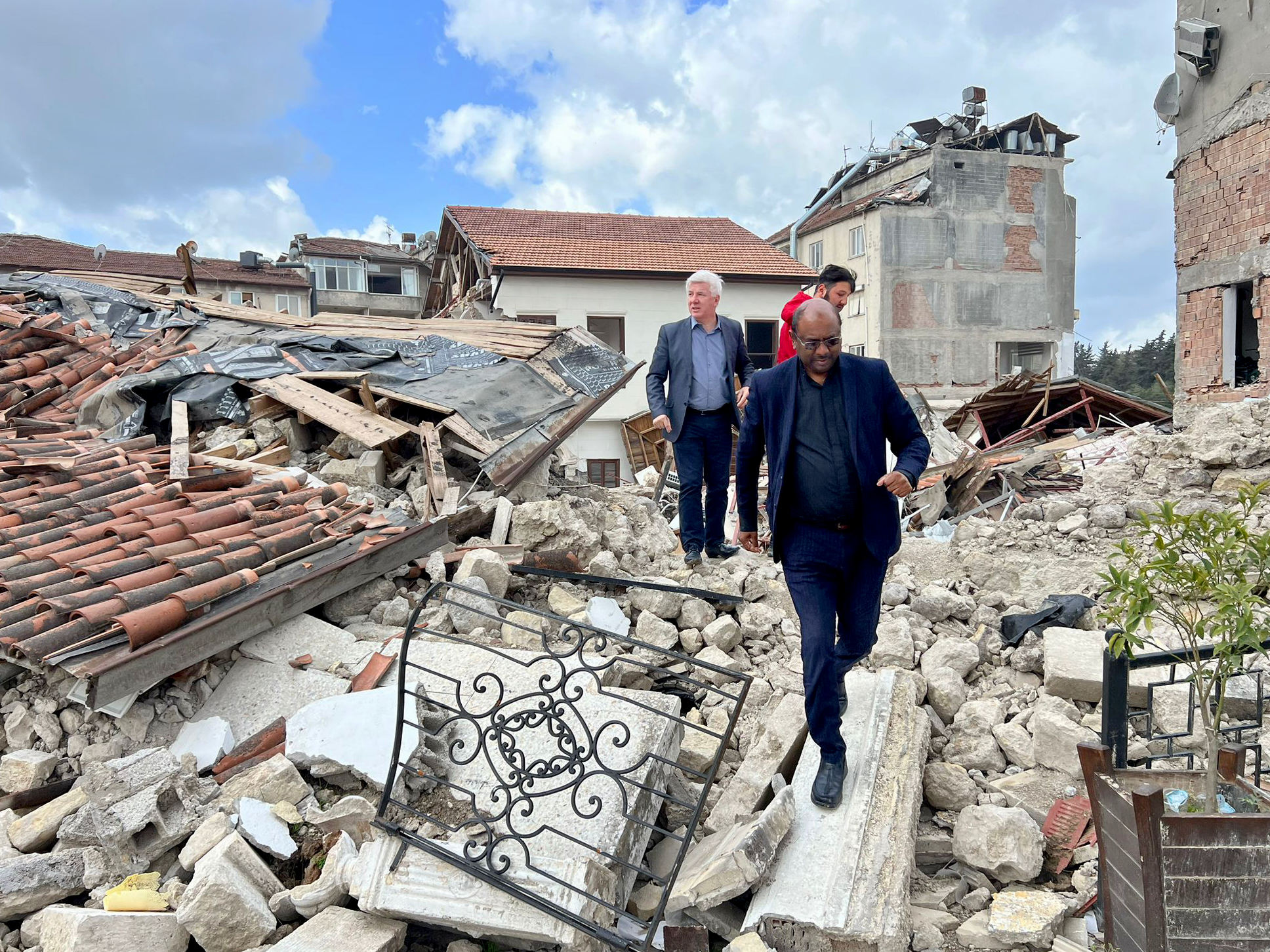
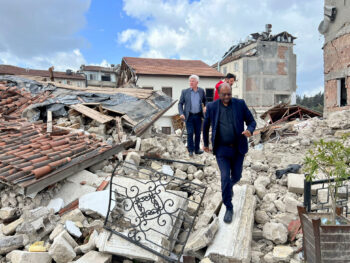
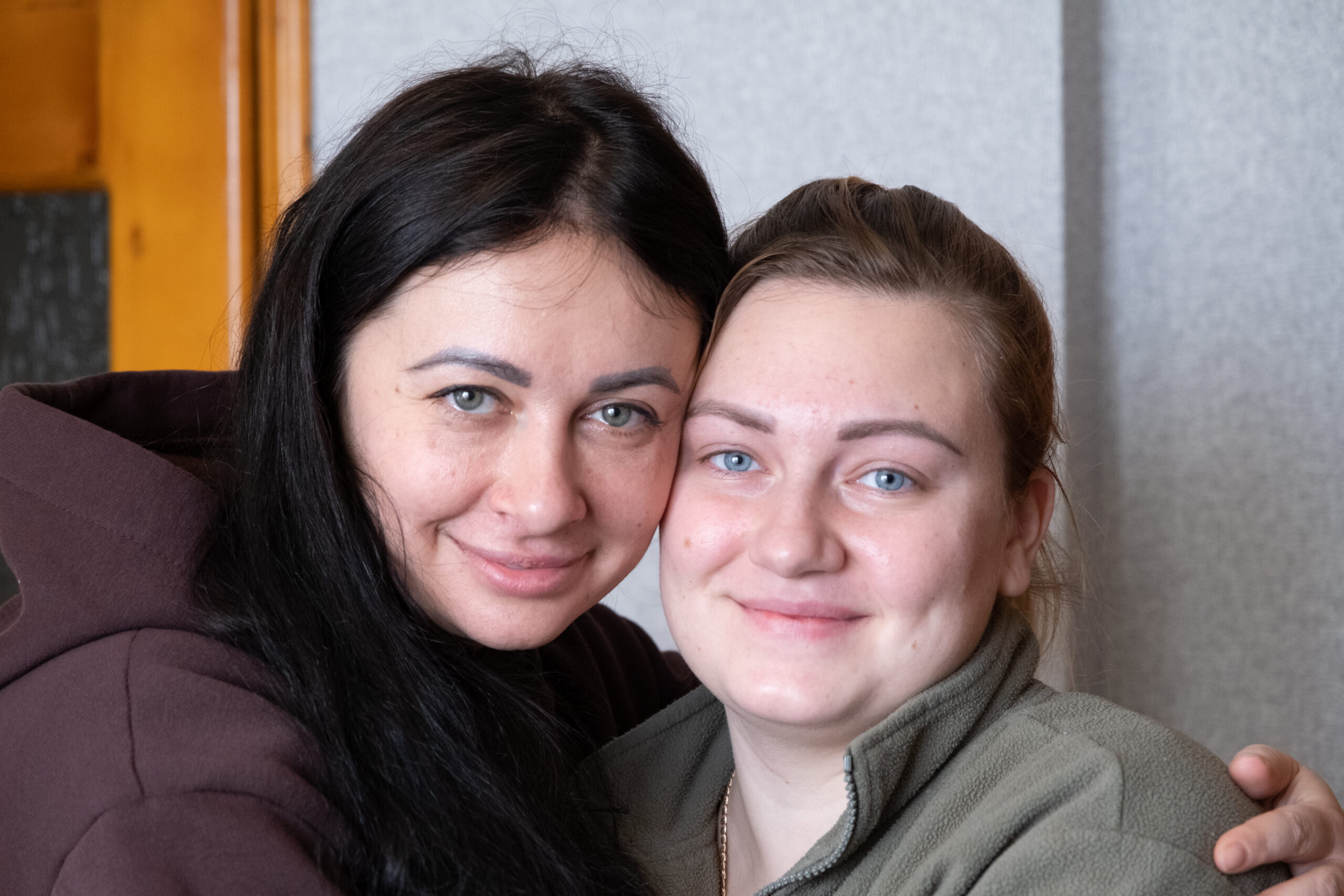
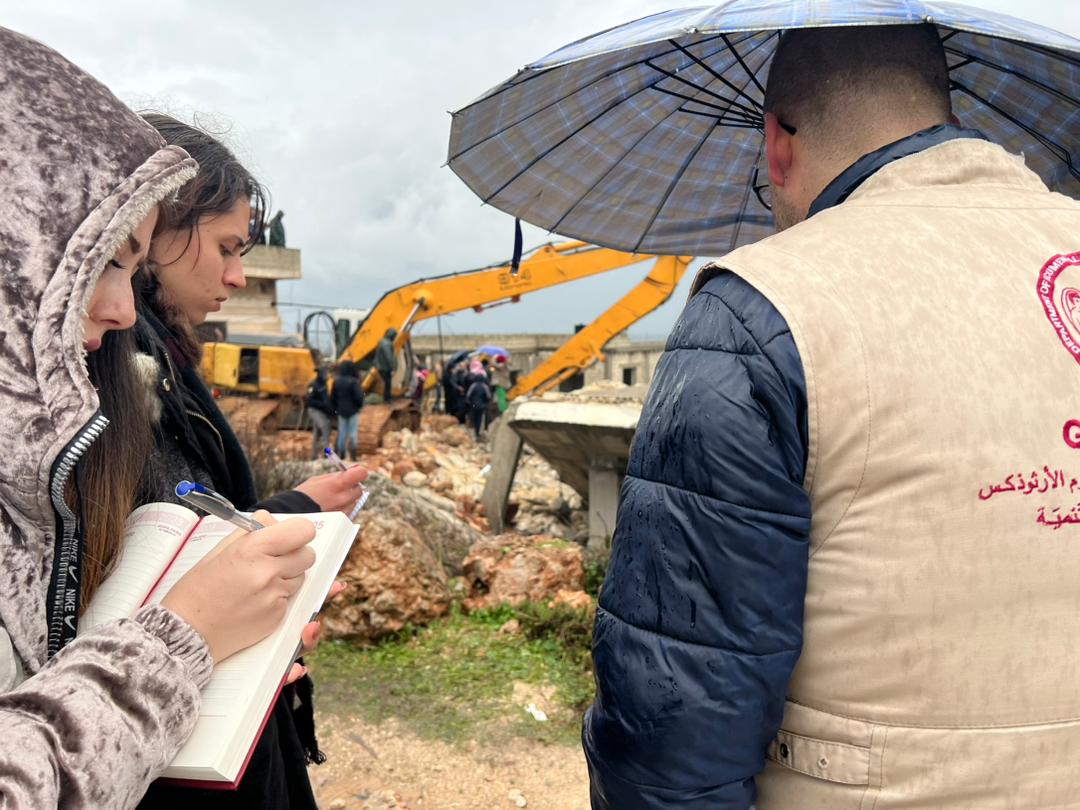
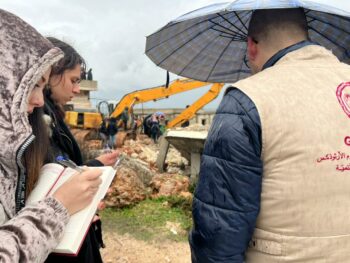
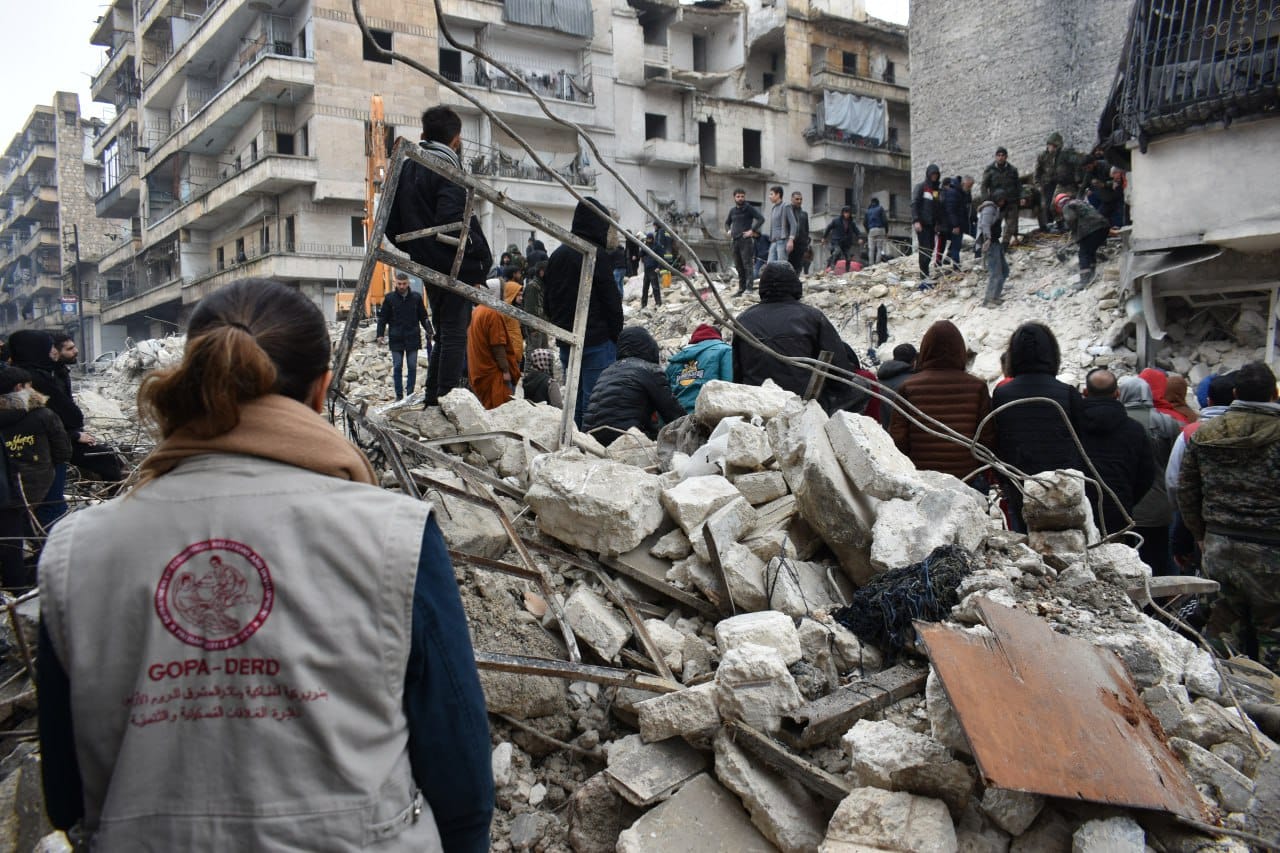
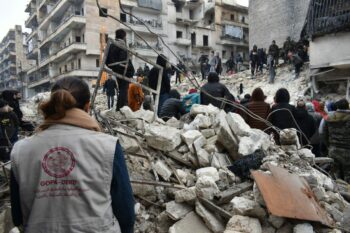
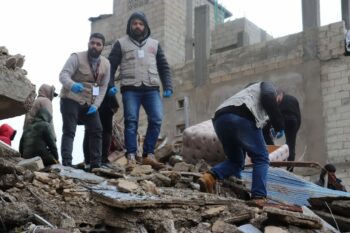
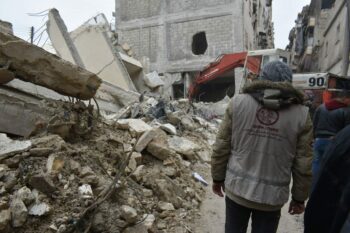
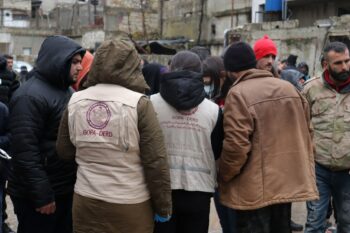
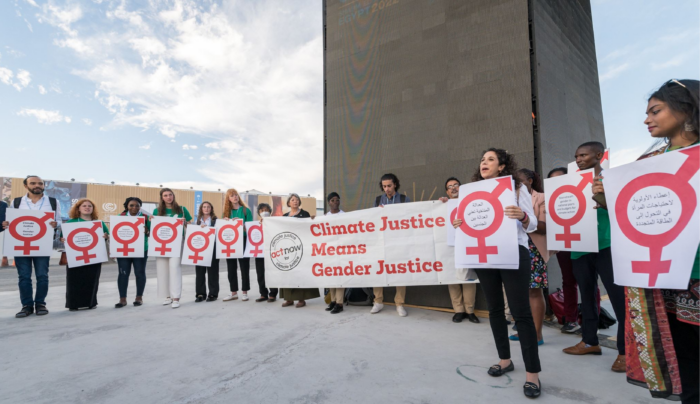
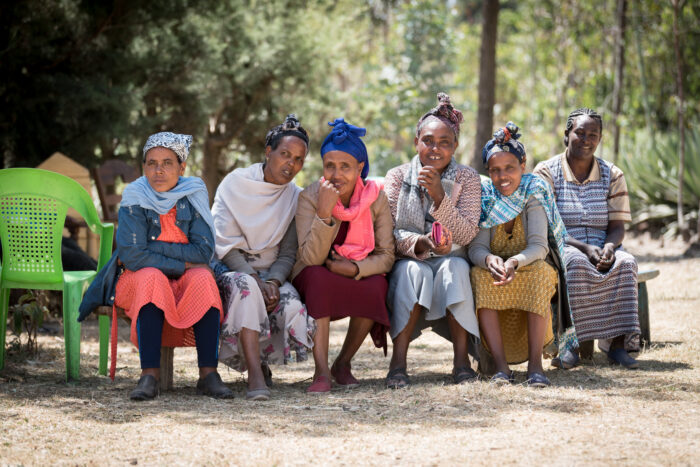
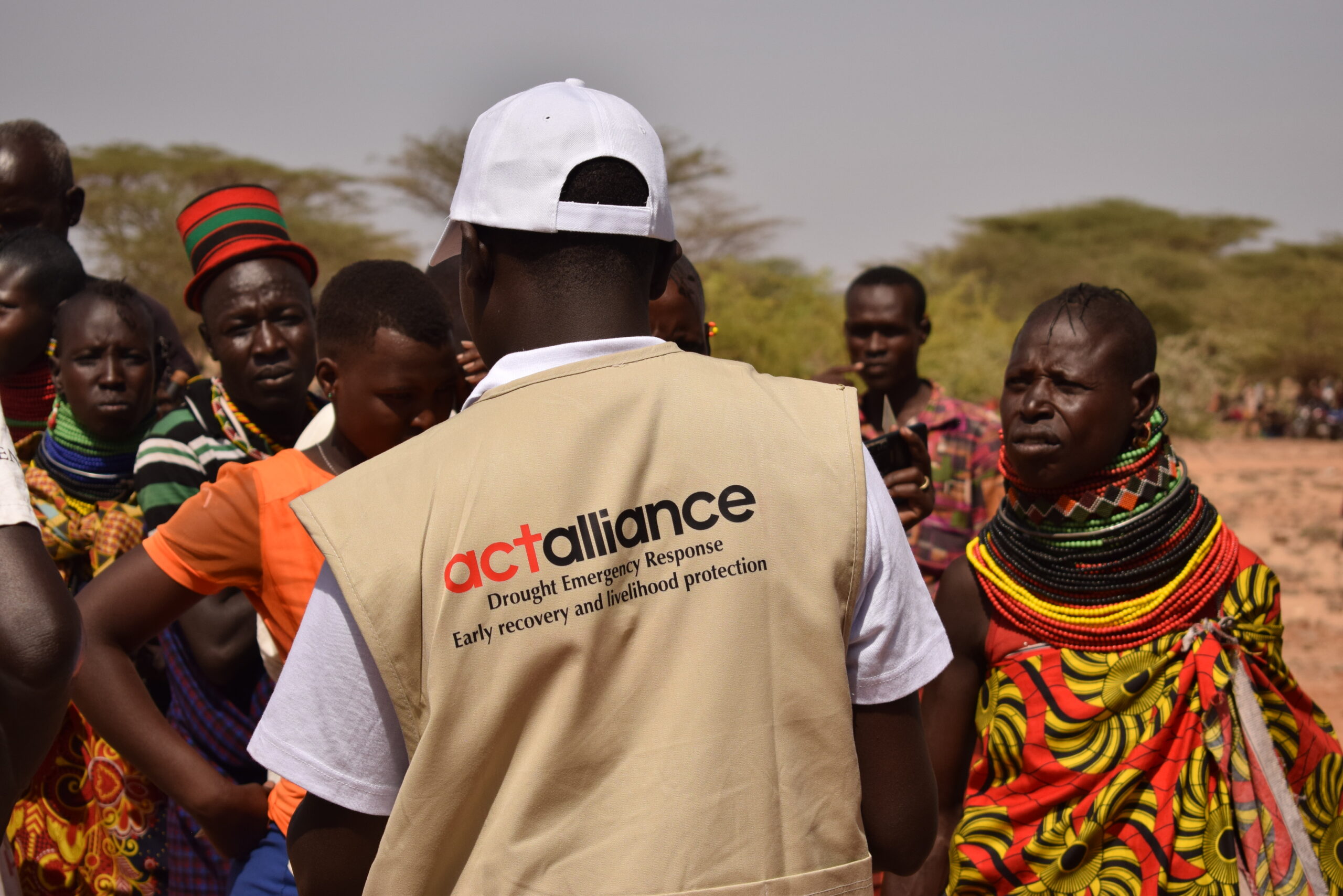
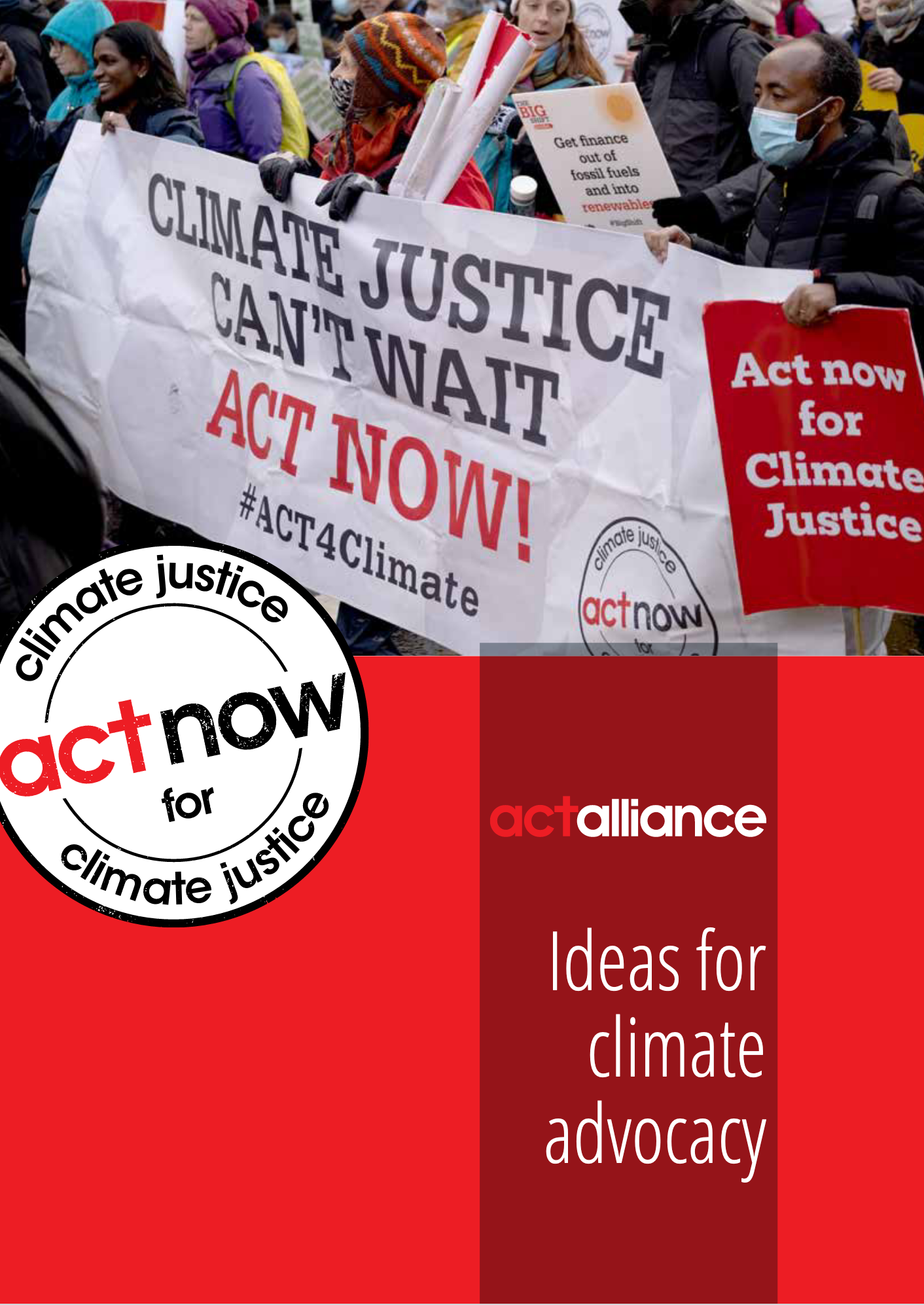 hope alive and I think this publication can help us,” says Mattias Söderberg, co-chair of the ACT Alliance Climate Justice Reference Group. “We can make a difference and achieve climate justice if we take action now!”
hope alive and I think this publication can help us,” says Mattias Söderberg, co-chair of the ACT Alliance Climate Justice Reference Group. “We can make a difference and achieve climate justice if we take action now!”